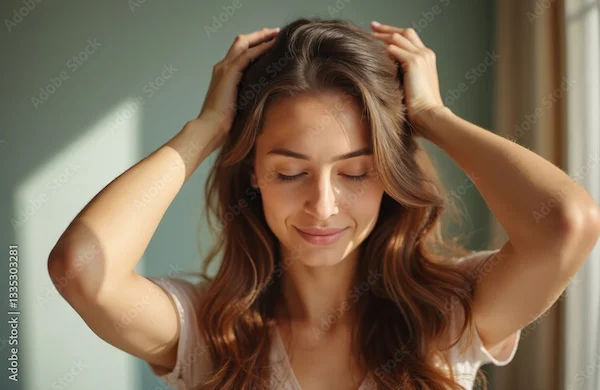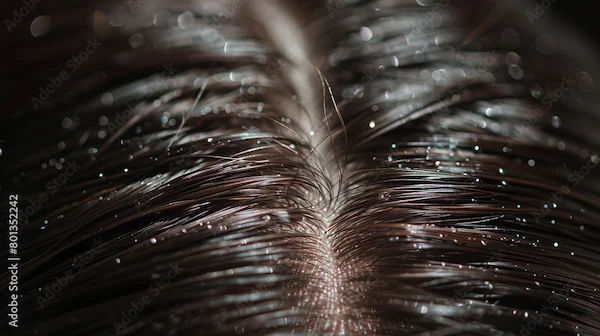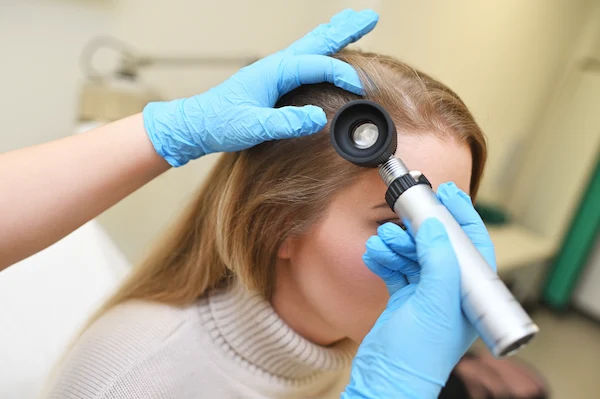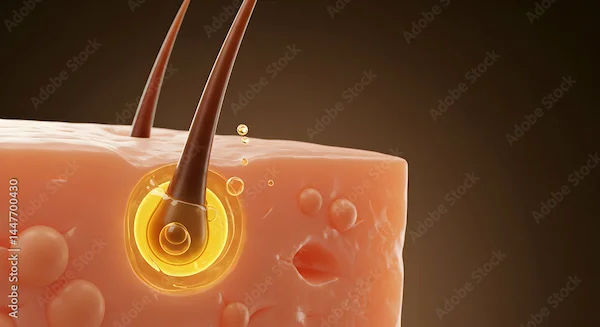How to Reduce Oily Scalp?
Discover effective tips to reduce an oily scalp naturally. Learn about the best hair care practices, home remedies, and lifestyle changes for a fresh, balanced scalp.

Written by
Last updated on 3rd Jul, 2025
An oily scalp can be frustrating, leading to greasy hair, frequent washing, and even dandruff or acne. There are simple and effective ways to manage it. In this article, we’ll explore why your scalp gets oily, how to control it, and tips for maintaining healthy hair.
Why Does the Scalp Get Oily?
The scalp produces natural oils (sebum) to keep your hair moisturised and protected. However, when your sebaceous glands produce too much oil, it can make your hair look greasy and flat. Common causes include:
Hormonal changes: Puberty, pregnancy, or stress can trigger overactive oil glands.
Genetics: Some people are naturally prone to producing more scalp oil.
Overwashing or harsh shampoos: Stripping natural oils can cause the scalp to overcompensate with more oil.
Poor diet: Eating too many fatty or processed foods can contribute to excess oil production.
Hair care habits: Frequent touching or using heavy hair products can transfer oil and weigh down hair.
Symptoms of an Oily Scalp
Symptoms of an oily scalp are as follows:
Hair looks greasy within a day or two of washing
Scalp feels sticky or heavy
Frequent dandruff or itching
Acne or pimples along the hairline
Consult Top Dermatologist
How to Reduce Oily Scalp?
Ways to reduce oil on the scalp are as follows:
1. Choose the Right Shampoo
Use a gentle, sulphate-free shampoo designed for oily hair.
Look for ingredients like tea tree oil, salicylic acid, or charcoal, which help control excess oil.
Avoid heavy conditioners on the scalp—apply them only to the ends of your hair.
2. Wash Your Hair the Right Way
Avoid overwashing: Washing too often can strip natural oils and trigger even more oil production.
Use lukewarm water: Hot water can overstimulate the scalp and increase oiliness.
Massage gently: Use your fingertips—not nails—to cleanse without irritating the scalp.
3. Adjust Your Hair Care Routine
Avoid heavy styling products: Gels, waxes, and serums can clog pores and make your scalp oilier.
Use dry shampoo: It helps absorb excess oil and keeps your hair fresh between washes.
Don’t over-brush: Brushing too often spreads scalp oil down the hair shaft, making it look greasy.
4. Diet & Lifestyle Changes
Eat a balanced diet: Cut down on fried foods, sugar, and dairy to help control excess oil.
Stay hydrated: Drinking enough water keeps your body balanced and helps regulate oil production.
Manage stress: Practices like yoga, meditation, or deep breathing can reduce stress-related oiliness.
5. Home Remedies for Oily Scalp
Apple cider vinegar rinse: Mix 1 part vinegar with 2 parts water to balance scalp pH and reduce oil.
Aloe vera gel: Soothes the scalp and helps control excess sebum naturally.
Lemon juice: When diluted with water, it refreshes the scalp and restores pH balance.
When to Concult a Doctor?
If your oily scalp is accompanied by severe dandruff, hair loss, or persistent acne, it’s best to consult a dermatologist. They can check for conditions like seborrhoeic dermatitis or hormonal imbalances.
Tips for Healthy Hair
Some tips for healthy hair include:
Avoid sleeping with wet hair: It can create a damp environment that encourages fungal growth.
Change pillowcases regularly: Dirty pillowcases can transfer oil and dirt back onto your scalp.
Trim your hair regularly: Helps prevent split ends and keeps your hair looking fresh and healthy.
Conclusion
Managing an oily scalp doesn’t have to be complicated. With the right hair care routine, balanced diet, and a few simple lifestyle changes, you can effectively reduce excess oil and enjoy fresher, healthier hair. Natural remedies and mindful habits go a long way in keeping your scalp balanced and irritation-free. If the issue persists despite your efforts, don’t hesitate to seek advice from a healthcare professional or dermatologist for tailored treatment.
Consult Top Dermatologist
Consult Top Dermatologist

Dr. S Madhuri
Dermatologist
10 Years • MBBS, MD. DVL, DNB, Fellow (Dermatosurgery & Lasers)
Secunderabad
Apollo Hospitals Secunderabad, Secunderabad
(300+ Patients)
Dr. Manan Mehta
Dermatologist
11 Years • MBBS , MD (Dermatology Venereology , Leprosy)
Gurugram
Avya Skin clinic, Gurugram

Dr. Krishnanand Boosa
Dermatologist
7 Years • MBBS, Diploma in Dermatology, Venereology & Leprosy
Hyderabad
TX HOSPITAL, Hyderabad
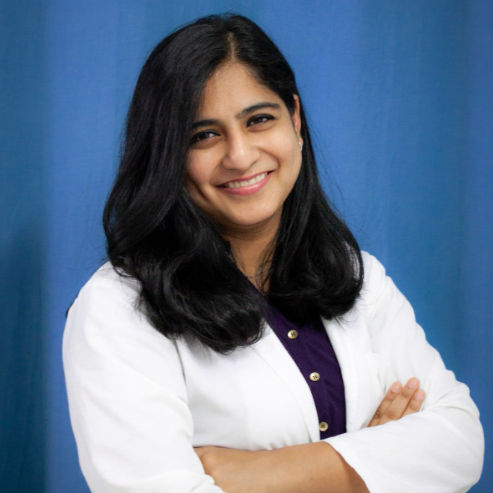
Dr. Amulya Ramamurthy
Dermatologist
8 Years • MBBS, MD Dermatology, FRGUHS (Dermatosurgery) and Fellowship in Aesthetic Dermatology
Bengaluru
Apollo Hospitals Jayanagar, Bengaluru
(100+ Patients)
Dr. Syeda Sarwath Saniya
Dermatologist
5 Years • MBBS,DVD
Bengaluru
Apollo Medical Center, Marathahalli, Bengaluru
Consult Top Dermatologist

Dr. S Madhuri
Dermatologist
10 Years • MBBS, MD. DVL, DNB, Fellow (Dermatosurgery & Lasers)
Secunderabad
Apollo Hospitals Secunderabad, Secunderabad
(300+ Patients)
Dr. Manan Mehta
Dermatologist
11 Years • MBBS , MD (Dermatology Venereology , Leprosy)
Gurugram
Avya Skin clinic, Gurugram

Dr. Krishnanand Boosa
Dermatologist
7 Years • MBBS, Diploma in Dermatology, Venereology & Leprosy
Hyderabad
TX HOSPITAL, Hyderabad

Dr. Amulya Ramamurthy
Dermatologist
8 Years • MBBS, MD Dermatology, FRGUHS (Dermatosurgery) and Fellowship in Aesthetic Dermatology
Bengaluru
Apollo Hospitals Jayanagar, Bengaluru
(100+ Patients)
Dr. Syeda Sarwath Saniya
Dermatologist
5 Years • MBBS,DVD
Bengaluru
Apollo Medical Center, Marathahalli, Bengaluru
